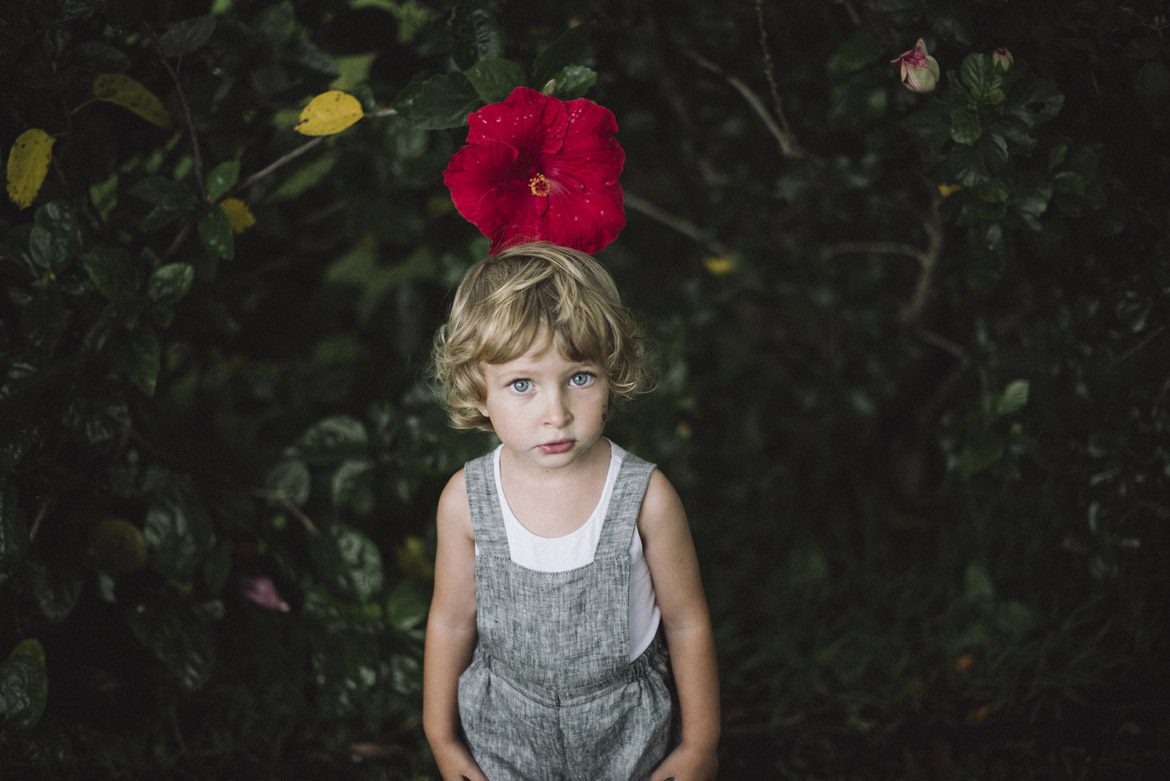By Dr. Deborah MacNamara
Approximately 1 in 5 children are more affected or stirred up by their environment and stand out in comparison to their peers. They are the kids who get more easily overwhelmed, alarmed, intense, sensitive, prickly in their responses, and passionate in temperament. According to Thomas Boyce at the University of California, these “orchid” children are neurobiologically distinct and possess an enhanced receptivity to their environment based on genotypical differences. [i] They are more highly tuned into their environment unlike “dandelion” children who are less aware and are more easy going in comparison.
Sensitive kids show greater receptivity and an enhanced capacity to take in their environment through the senses. It is comparable to radio antennas that are tuned for maximum receptivity so as to avoid missing any signals. While the type and level of receptivity differs in each child, they will show heightened sensory responses in visual, auditory, touch, taste, smell, kinesthetic/proprioceptor, emotional/perceptual areas. The possible combinations are endless and each child will have a continuum of receptivity when it comes to each sense.
Orchid children may complain the tags in their clothes are too itchy, sounds are too loud, smells are too strong, or some foods taste so bad it feels it burns their tongue. They are also more likely to suffer allergies and skin problems. It can be difficult to get their attention because they are bombarded by sensory information and are overwhelmed. They also seem to posses a natural brightness in comparison because of their enhanced receptivity to information and stimulation. Adults might see them as being overly dramatic or reactive but they are only being true to the enormous world that exists inside of them.
The neurobiological differences in orchid children make them more sensitive to child rearing practices – they will either wither or thrive. [ii] When they are raised in stressful environments they are greatly impacted unlike dandelion counterparts who fare much better. They are more likely to suffer from mental health issues, addictions, and delinquency as a result of such conditions. However, when orchid children are raised under ideal conditions with the presence of caring adults, their development can surpass their dandelion counterparts. “An orchid child becomes a flower of unusual delicacy and beauty.” [iii] Despite neurobiological differences and heightened reactivity in sensitive children, it is the relational environment they grow in that makes the difference developmentally.
What challenges are commonly faced when raising sensitive kids?
There are a number of challenges in raising sensitive children given they are so receptive to sensory information. They are significantly different than their easy going counterparts and require special attention by caretakers. Parents of sensitive children will tell me it can be difficult to have a child that appears to be so reactive in comparison to others. They often internalize their child’s behaviour believing it is their fault rather than making sense of how easily their child is stirred up by their environment. Parents of sensitive children have a hard time describing the differences they see in their child to other adults. Parents are often judged as being too overprotective and are likely to be misunderstood. It is fortunate for many orchid children that one or both of their parents may be sensitive too, aiding them in making sense of their child.
The more sensitive the child, the more easily they are stirred up.
Given the heightened receptivity of the orchid child, it should come at no surprise they can be easily overwhelmed and overstimulated by their environment. This is especially true in the early years when their brains are immature and more susceptible to being overloaded with sensory information. Their world can often feel too much for them with perfect storms arising from being tired, hungry, and frustrated all at the same time. This can lead to upset and outbursts, prickly or resistant behaviour.
Under ideal circumstances, it should take the average child 5 to 7 years for their brain to fully integrate the sensory information they receive with increasing speed and efficiency. Once brain integration is achieved, the child should start to show signs of impulse control, tempering in their emotional responses, and an appreciation for context. Orchid children may need more time with brain development by up 1 to 2 years, depending on their sensitivity levels and environment.[iv]
This potential delay in brain development has implications for schooling as impulse control and tempered emotional responses will arrive later in comparison to their dandelion counterparts. While they can be intellectually robust at the age of 6, their behaviour may seem immature with outbursts, upset, and a lack of self-control still present. Given a sensitive child’s enhanced receptivity to external stimuli, the prefrontal areas of their brain need more time to wire up neural pathways to handle the additional sensory information. In the meantime, they are at greater risk of being diagnosed with attention or behavioural problems instead of the late bloomers they actually are.
The more sensitive the child, the more easily overwhelmed by experience.
One of the common mistakes made with sensitive children is to give them more sensory information than they can handle because of their natural brightness. More is not better for an orchid child and is likely to trigger defenses to shut out sensory information. Sensitive children don’t need to be exposed to more stimulation, rather; they need more time and space to process it. Opportunities to play are some of the best ways to provide this space to a young sensitive child and creative solitude as they get older. The old adage, “a little goes a long way” fits well with the sensitive child and their surroundings.
Sensitive children can become overwhelmed by emotional material as well. Feelings are vulnerable territory for most people but more so for the orchid child. Emotional experiences involving fear, caring, enjoyment, frustration, guilt, shame, loneliness, and rejection can lead to heightened responses. In young sensitive children, separation can be particularly challenging for them with big outbursts ensuing. Temper tantrums can take on a life of their own with an increased intensity and length of time required for the expression of frustration and aggression. At the same time, their strong desires and caring can set them up for tremendous disappointment. They often imagine far more than they can ever actualize and become easily frustrated by their human imperfections. Their feelings can be big, overwhelming, and out of control – this is why they need strong caretakers who can help them move through these storms.
With time and good development, the sensitive child can form a relationship with their big internal world leading to tempering in their emotional responses. Until then, it will be the responsibility of their adults to ensure their tears still flow, they can express what bothers them, and they have a soft place to land when the world feels too much.
See next page for more…











